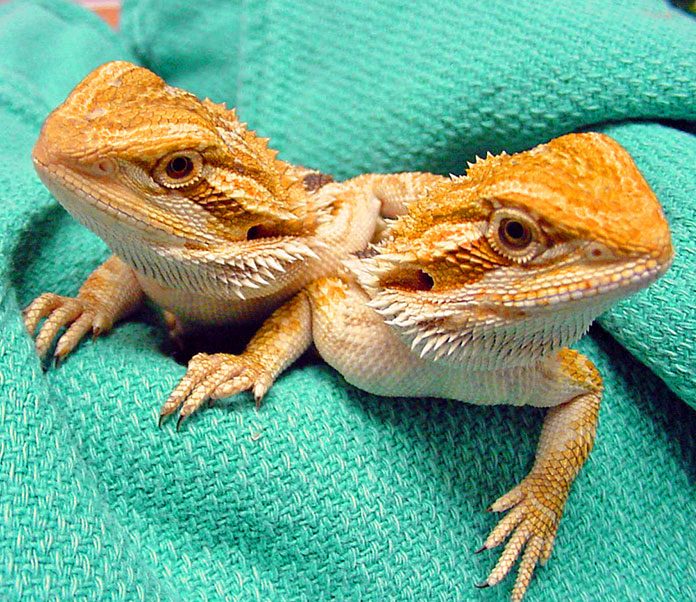Dangers exist when keeping reptiles as pets, but not just as bites and scratches. You can also contract salmonella disease from not washing your hands after coming into contact with the feces or urine or touching something that has. It’s important to keep your hands away from your face, food, or food preparation areas or utensils until you’ve properly washed and disinfected your hands.
Salmonella can be transferred to your countertops from the reptile’s feet, so allowing the little bugger to walk on in your kitchen, on your dining table, or even near your toothbrush is inadvisable. Mild infection of salmonella includes diarrhea, fever, and stomach cramps. More severe infection happens if the germs travel to the bloodstream, bone marrow, or nervous system.
 Other diseases that can be passed to you from reptiles are toxoplasmosis, Lyme disease, rabies, or chronic fatigue syndrome. These diseases are known as zoonotic diseases, those which can be passed from animal to animal or animal to human. It is important to understand that reptiles are not the only animals that transmit these diseases, so there’s no need to panic just because you weren’t aware of them before you bought the reptile. Lyme disease is passed by tick bites, and you can get ticks from walking through tall grass!
Other diseases that can be passed to you from reptiles are toxoplasmosis, Lyme disease, rabies, or chronic fatigue syndrome. These diseases are known as zoonotic diseases, those which can be passed from animal to animal or animal to human. It is important to understand that reptiles are not the only animals that transmit these diseases, so there’s no need to panic just because you weren’t aware of them before you bought the reptile. Lyme disease is passed by tick bites, and you can get ticks from walking through tall grass!
Proper handling of your reptile is the most important issue to keep diseases from being passed to you or your loved ones. So, make sure you educate your children on the importance of proper handling and hand washing. If you aren’t sure they are old enough to understand, it is best if you keep the reptile away from the child’s reach at all times. The temptation of touching the reptile or putting their hands in the cage just might be too much for them to resist.
Besides the risk of diseases being transferred to humans, the reptiles themselves can suffer from several diseases. Mites, ticks, worms, rickets, osteoporosis, fungal diseases, bacterial diseases, anemia, depression, or anorexia are just a few. There’s also a disease known to attack lizards called metabolic bone disease. It’s very painful for the reptile and is often caused by lack of calcium. Improper ultraviolet radiation also causes the reptile problems because of the inability to release vitamin D3, which enables proper absorption of calcium. The symptoms of this disease are brittle bones, swollen jaws, swollen legs, recessed jaws, and no energy. Just imagine how horrible it must feel!
Other problems reptiles can encounter are mouth rot, skin disease from improper shedding, organ bleeding from an overdose of vitamins, colds, and respiratory infections. Central nervous systems can suffer with vitamin B1 deficiency. A female reptile can acquire overloaded ovaries or post ovulatory eggs, which could require surgery.
This is why you must take your animal’s welfare seriously. If you are well-armed with knowledge on how to care for it, the chances of it contracting or becoming worse from disease is much reduced. Of course, you have much less control over something the reptile may have had prior to your care. This is where it will help to have some background on the history of the pet shop where you decide to purchase. It also helps to know what to look for to spot some problems before you purchase!

































